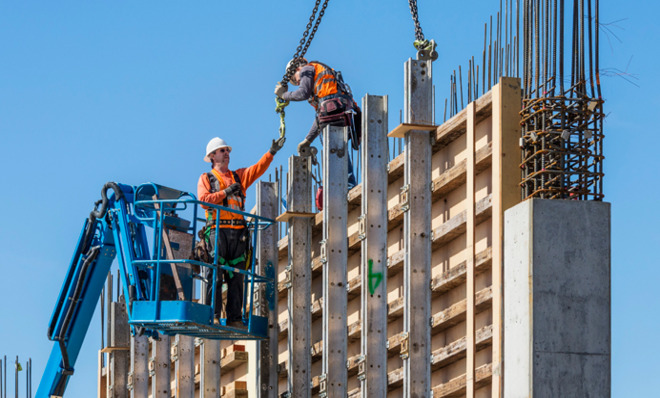America's factories are crumbling — is the economy next?
The average age of industrial equipment is the highest since the Great Depression

A free daily email with the biggest news stories of the day – and the best features from TheWeek.com
You are now subscribed
Your newsletter sign-up was successful
According to a report from the investment bank Morgan Stanley, the average age of industrial equipment is now almost 10.5 years old. That's the oldest it has been since 1938 — at the very height of the Great Depression.
This is a byproduct of the fact that since 2007, nonresidential capital expenditure — in other words, spending on equipment, nonresidential buildings like factories, and intellectual property — has fallen short of the long-term trend by 15 percent per year. That means businesses have pumped into the economy $400 billion less than they should have every year. That's $1.6 trillion over the past four years, and it's affecting every sector. Spending has been down 14 percent on buildings, 16 percent on equipment, and 6 percent on intellectual property.
How come? Well, it's not for a lack of cash.
The Week
Escape your echo chamber. Get the facts behind the news, plus analysis from multiple perspectives.

Sign up for The Week's Free Newsletters
From our morning news briefing to a weekly Good News Newsletter, get the best of The Week delivered directly to your inbox.
From our morning news briefing to a weekly Good News Newsletter, get the best of The Week delivered directly to your inbox.
American firms are sitting on a record hoard of $1.8 trillion in cash, but as Reuters' Jamie McGeever points out, firms have been more likely to spend on rehiring workers, funding mergers and acquisitions, and buying back their own shares than investing in equipment or factories.
McGeever worries that this lack of capital expenditure means that the economy may not be "strong enough to sustain a potential growth rate of around 2.5-3 percent."
So why are firms hoarding cash instead of investing in the future?
Well, cash hoarding results from firms' worries. Firms spend when the economic outlook looks rosy and they see the potential for profit. If firms fear economic trouble is brewing, then cash looks relatively safe — much safer than buying a new factory or new equipment, which are useless if customers aren't spending.
A free daily email with the biggest news stories of the day – and the best features from TheWeek.com
And since the financial crisis, demand across the U.S. economy as a whole has been far below trend, (although certainly not as weak as in countries like Spain, Italy, or Greece).
The good news is that thanks to the Federal Reserve's accommodating monetary policy, there is a recovery, and economic conditions really are improving, albeit slowly.
For the first time since 1997, the U.S. economy has added more than 200,000 jobs a month over a six-month period. And unemployment is now 6.2 percent, a significant improvement on the recession's 9.9 percent high.
U.S. industrial production has made a modest recovery, rising above its 2008 peak. Capacity utilization is now up to 79.1 percent, a big improvement from 67.1 percent in 2009. U.S. exports are now above $2 trillion, the highest level in history.
And one of the best signs of all is that finally — after years of rises — food stamp usage is falling.
As a result of all this economic progress, business confidence is positive at 57.1 percent, up from 32 percent in 2009.
So with the facts of the recovery in mind, America's crumbling factories and equipment start to look like less of a problem and more of an opportunity for economic growth. Factories and equipment will have to be replaced, sooner rather than later, not least to keep pace with new technological innovations such as 3-D printing, robotics, artificial intelligence, and cloud computing.
And with U.S. firms sitting on big piles of cash, they have the resources — and increasingly the confidence — to do so.
So I don't think this is a sign that the economy is in peril or about to go down the toilet. This is a sign that the slow recovery is due to get stronger.
John Aziz is the economics and business correspondent at TheWeek.com. He is also an associate editor at Pieria.co.uk. Previously his work has appeared on Business Insider, Zero Hedge, and Noahpinion.
-
 The problem with diagnosing profound autism
The problem with diagnosing profound autismThe Explainer Experts are reconsidering the idea of autism as a spectrum, which could impact diagnoses and policy making for the condition
-
 What to know before filing your own taxes for the first time
What to know before filing your own taxes for the first timethe explainer Tackle this financial milestone with confidence
-
 The biggest box office flops of the 21st century
The biggest box office flops of the 21st centuryin depth Unnecessary remakes and turgid, expensive CGI-fests highlight this list of these most notorious box-office losers